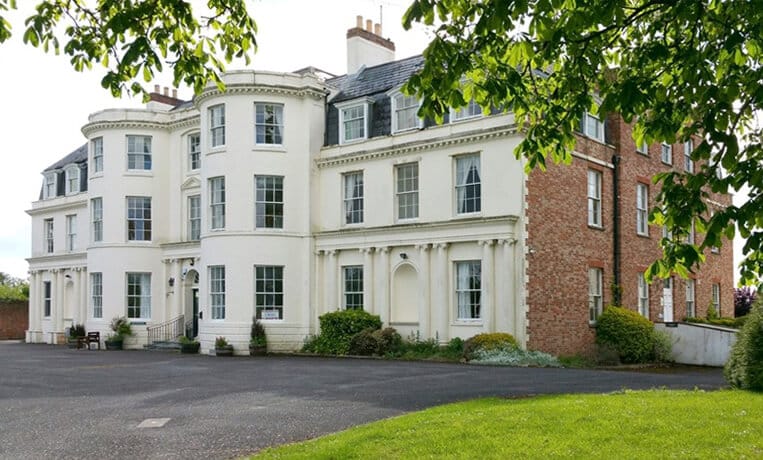Drug and alcohol problems are prevalent throughout the United Kingdom, and the North West of England is no exception.
Manchester and its surrounding areas record high numbers of drug and alcohol-related crimes and hospital admissions.
As a town in Greater Manchester, Bury shares similar problems.
According to statistics, alcohol-specific mortality in Bury is significantly worse compared to the average in the rest of England.
Additionally, almost one-in-four (23.4%) of patients in treatment in Bury are also in contact with the criminal justice system, meaning that they have committed or been accused of committing a crime.
When it came to young people and students, around 16% were more than sure that their friends consume drugs regularly.
8% of pupils also reported having consumed an illicit substance at least once, with 4% having consumed it within the last month.
The increase in drug-related deaths due to drug poisoning increased in Bury in 2018 – however, the area also saw a decrease in the following years.
While the mortality rate per 100,000 for deaths related to drug poisoning was higher for the Northwest when compared to Bury, Bury’s figures were still higher than the England average.
Data from Public Health England show that almost 80% of dependent drinkers in 2018/19 in Bury were not seeking treatment from a rehab provider.
The figure for opiate or cocaine users not in treatment in Bury were higher than the regional and the national average.
From April 2019 to March 2020, Bury saw 486 new admissions into treatment, whether it be for drug or alcohol addiction.
Of this figure, 22% were parents or adults living with children, whereas 34% were parents not living with children.
Clearly, addiction affects people of all ages in the community of Bury.
Get alcohol and drug rehab in Bury for addictions such as binge drinking, alcohol addiction, benzodiazepine addiction, Buprenorphine addiction, cannabis use disorder, crack cocaine addiction, ketamine addiction, opioid use disorder, heroin addiction, cocaine dependence or cocaine addiction, any physical dependence or codependency, substance use disorder, and behavioural addictions such as gambling addiction and eating disorders.
To begin your recovery journey today at a drug and alcohol rehab in Bury – call our 24 hour helpline on 0800 140 4690

Physical addiction – the nine types:
Behavioural addiction – the five types:
The 4 Cs – compulsion, consequences craving, and control are what make up an addiction.
Mental illnesses can make you more likely indulge in addictive behaviour in order to escape your problems, or self-medicate.
Seeing people around you engaging in addictive behaviours or substances, like parents or friends can also make you more likely to fall down the same route.
Even your genetics can play a role.
Research into people with particular protein-coding gene known as CHRM2 has found that people with this were more likely become addicted.

You may have noticed as your addiction worsened that you begin with experimentation, which became regular use, then preoccupation and finally, dependency.
These are what’s known as the four levels of addiction, which most people will pass through in turn.
Forgiving yourself for your past actions, and believing in your ability to be sober are the most important things you can do.
The sense of wellbeing this will bring will help you to get over any obstacles you face, and stay on the path of recovery.
The five rules of recovery will keep you on the straight and narrow:

The 7 Rs refer to all of the ways that people recover after a crisis.
These have also been applied to recovering from addiction, as this is a crisis in its own right.
In order to regain your life, you’ll need to:
Recovery will take you through 5 levels as you heal:
From person to person, recovery time can differ, because everyone’s addiction and individual circumstances are different.
The average time you’re looking at is six months to five years.
This will depend on your level of care received, support network and willingness to change.

Addiction is a disease of chronic relapsing in the brain, not a lifestyle choice.
Neurologists who developed the brain disease model of addiction describe the process as a chemical alteration due to repeated exposure to an addictive substance which forms new neural pathways.
A common misconception is that disease is enabled by poor choices and a lack of discipline.
However, the disease of addiction presents a range of symptoms which make it incredibly difficult and potentially dangerous when the addicted person chooses to abstain.
The addicted person will experience a range of withdrawal symptoms, and they will vary from subject to subject.
Substances that are physically addictive, such as alcohol, heroin, or other opiates, will cause withdrawal symptoms such as nausea, headaches, diarrhoea, vomiting, trembling, and seizures.
On the other hand, psychologically addictive substances such as cocaine or cannabis will cause psychological withdrawal symptoms such as paranoia, anxiety, depression, and more.
The severity of a person’s withdrawal symptoms will vary according to their addiction history and their physical and mental well-being.
Different subjects experience different symptoms and thus require various forms of treatment.
Because of this, personalisation at a drug and alcohol rehab in Bury is paramount.
Learn more about addiction by giving our team a call today on 0800 140 4690

You may be suffering from addiction if you have experienced some of the listed withdrawal symptoms associated with drug and alcohol addiction below.
When people feel compelled to drink or consume their illicit substances and begin to feel suboptimal without these substances, they are likely suffering from an addiction.
When facing the possibility of an addiction, it is essential that patients seek an official diagnosis from a licensed professional.
However, there are tools available which can share some more insight about someone’s own addiction swiftly and effectively.

The first step to recovering from alcoholism is to admit that you have an addiction.
Naltrexone is a medication used to support recovery from alcoholism by blocking the ‘high’ you associate with alcohol.

If a subject answers ‘yes’ to two questions or ‘yes’ to the final question, it indicates that they may be suffering from a moderate to severe form of alcohol addiction.
When this is the case, it is important that the patient seeks diagnosis in order to be admitted into a drug and alcohol rehab in Bury to receive the support they require to overcome addiction.

Another alcoholism screening tool is the Alcohol Use Disorder Identification Test or AUDIT.
Here, subjects must answer a series of questions about their consumption, consequences, and substance abuse history.
If answered sincerely, subjects will receive a score which reflects their dependence severity.
A score of less than eight indicates that subjects are either susceptible to falling into addiction or suffer mildly.
Eight or higher indicates a moderate form of addiction, whereas a score of 13 or higher indicates a severe form of addiction.
Patients who receive higher than 13 should immediately seek the support of a drug and alcohol rehab in Bury.
Fortunately, subjects will also receive a diagnosis from a licensed professional and won’t have to entirely rely on these convenient drug and alcohol addiction screening tools.

The ASAM Criteria, for example, is a multidimensional addiction screening tool and placement criteria guideline.
A placement guideline is important in order to not only understand the severity of someone’s addiction but to understand what level of care they require.
There are six dimensions to the ASAM criteria, and counsellors and consultant psychiatrists will take into account these factors when assessing the patient’s required level of care.
The levels of care are:
Not sue if you’re suffering from addiction? Talk to our expert team on 0800 140 4690

It is not always the addicted person who contacts a rehab provider such as Rehab 4 Addiction.
Often, a close friend or family member of the addicted person is the one who takes the first measures in order for them to seek support from a drug and alcohol rehab in Bury or elsewhere.
At Rehab 4 Addiction, we can help a friend or family member of the addicted person in guiding them towards seeking support from a rehab facility in Bury.
This can be done by assigning a local interventionist, and they will then facilitate intervention in Bury in order to guide them into seeking addiction treatment.
It is essential that interventions are non-confrontational and encourage open communication.
At an intervention, there is a great opportunity to express how one thinks or feels and how their loved one’s addiction affects their life.
CRAFT intervention is a popularised method of intervention. This is because it places particular emphasis on the friends and family of the addicted person.
CRAFT intervention hosts family counselling sessions, communication skills training, relapse identification training, and other sessions which will greatly benefit them.
Help your loved one access the help they need from a drug and alcohol rehab in Bury by calling us on 0800 140 4690

Typically, an inpatient facility refers to a private and residential rehab facility in which the patient receives accommodation.
Outpatient treatment typically refers to a public addiction treatment programme, such as the NHS or AA.
Generally, inpatient rehab treatment is considered to be the most optimal form of treatment that a patient can receive.
This is because they will stay at an on-site accommodation where they can focus entirely on their recovery.
They will also undergo a personalised addiction treatment programme which addresses each unique requirement.
Inpatient treatment offers therapy and counselling sessions where the patient will learn to overcome a range of mental and emotional issues.
Therapy might include Acceptance and Commitment Therapy, acupuncture, art therapy, cognitive behavioural therapy, dialectical behaviour therapy, drama therapy, Eye Movement Desensitization and Reprocessing, group psychotherapy, motivational therapy, Rational Emotive Behavior Therapy, brief intervention, contingency management, coping mechanisms work therapy, equine therapy, family therapy, group therapy, individual therapy, mindfulness, motivational interviewing, music therapy, art therapy and talking therapies.
This programme of treatment will help them overcome not only addiction but many other areas of life.
The inpatient facility in Bury will be staffed by trained and experienced professionals who will be there to offer constant support to the patients.
If necessary, a patient will also undergo a medicated detox at an inpatient facility.
Here, they will receive 24/7 support and care in order to help them overcome addiction.
Outpatient rehab facilities, however, offer flexibility and affordability.
Because they are public programmes, patients will not need to pay for their treatment.
Additionally, they will be able to return home each night and even maintain employment or pursue academic or personal goals during their recovery.
Being able to maintain employment is a huge factor for some patients recovering from addiction.
Most sessions will be held in the evening to accommodate those who are following a typical working schedule.
Outpatient recovery even allows patients to undergo a home detox.
However, outpatient treatment isn’t optimal for every kind of patient.
It should only be considered an option for those suffering from a mild to moderate form of addiction.
A patient suffering from a severe form of addiction or susceptible to relapses should seek the support of an inpatient rehab facility in Bury.
Patients who are at high risk of relapse include those who consume very high amounts of their addictive substance, suffer from mental health conditions such as post traumatic stress disorder (PTSD), bipolar disorder, borderline personality disorder, obsessive compulsive disorder or schizophrenia, or become erratic or even violent, for example.
Alcohol dependence can be established using the Alcohol Use Disorders Identification Test, DSM-5 or CAGE questionnaire.
Drinkers will have built up a strong tolerance to alcohol, and experience unpleasant withdrawal symptoms (, alcohol withdrawal symptoms) or alcohol withdrawal syndrome when they stop drinking.
To ensure that the risk of seizures is curtailed our medical team prescribe patients with Chlordiazepoxide, brand name Librium, as they undergo detox as this has been shown to offer extra protection against the risk of seizures.
A medically-assisted detox (alcohol detox) is needed in order to try to prevent the effects of alcohol, including encephalopathy (Wernicke encephalopathy) and delirium tremens.
For help choosing between inpatient and outpatient treatment, give our team a call on 0800 140 4690

One of the drawbacks that private or inpatient rehab has compared to outpatient rehab is that it may seem expensive for patients.
For a 28-day stay at a private residential rehab in Bury, patients could expect to pay between £4,000 to £40,000.
If you would like a more personalised estimation of how much your stay at a drug and alcohol rehab in Bury is likely to cost, call our experts on 0800 140 4690

Of course, there is a wide range when it comes to price.
The price is location-dependent, and it relies on the quality of facilities, benefits, the experience and reputation of its workers, and treatment methods.
Before committing to undergoing treatment at a particular facility, it is important that patients consider what their priority is.
To learn more about drug and alcohol rehab in Bury, call us on 0800 140 4690

If you are undergoing inpatient addiction treatment, you may be entitled to some coverage if you have health insurance.
Employer health insurance or private health insurance, for example, might sometimes be able to cover some or most of the treatment at a residential drug and alcohol rehab.
Policies will vary from one provider to another, so it is important to understand what they will and will not cover.
It is also important to understand what is provided or included in your treatment at a drug and alcohol rehab in Bury.
Rehab 4 Addiction can help you understand what is and isn’t included with your treatment.
One health insurance provider may cover the accommodation expenses at a drug and alcohol rehab.
Another may cover the medication or the counselling and therapy sessions.
Another may cover each of these and more, or none at all if they are not aware of the insured person’s addiction.
It is imperative that subjects communicate with their health insurance provider before committing to undergoing treatment.
This is because it is important to understand what will be covered and what they may need to pay for themselves.
Often, rehab providers have payment plans for their patients undergoing recovery.
Not sure if your health insurance will cover the cost of addiction treatment? Call us today on 0800 140 4690

Aside from outpatient addiction treatment, private addiction treatment can also be funded by the NHS.
However, this kind of funding is incredibly difficult to obtain, and there are many logistical obstacles that patients must overcome.
Patients must be referred by their local GP or hospital before applying for funding from the NHS.
Many applicants have waited as long as months to receive a response, only to find that their application has been rejected.
Additionally, the NHS are likely to place applicants under outpatient programmes while they are waiting.
However, many practitioners have criticised the lack of personalisation or intensity of outpatient treatment programmes.
This means that patients could be waiting months as their addiction festers, only for their application to be rejected.
Non-residential addiction treatment services offered by the NHS and addiction charities in and near Bury include:
Address: Child & Family Service, Fairfield General Hospital, Rochdale Old Road, Bury. BL9 7TD
Telephone: 0161 716 1100
Website: https://www.penninecare.nhs.uk/burycamhs
Address: 4 Glebelands Rd, Prestwich, Manchester, M25 1NE
Telephone: 0161 773 1523
Website: https://www.turning-point.co.uk/
Address: 43A Carnarvon St, Cheetham Hill, Manchester, M3 1EZ
Telephone: 0161 823 6306
Website: https://www.changegrowlive.org/manchester
Free organisations offering addiction services include NHS Foundation Trust, Turning Point, We Are With You, National Association for Children of Alcoholics, Change Grow Live, Al-Anon and Alateen.
Rehabs and organisations are advised by the American Society of Addiction Medicine and the National Institute for Health and Care Excellence so you are in safe hands with person-centered care.
You may also be offered sober living houses as part of your aftercare after you leave rehab in order to help you maintain your sobriety.
Please call our 24-Hour Helpline on 0800 140 4690

Outpatient addiction treatment may last much longer than inpatient addiction treatment, although it will not be as intense.
Rather than spending hours per day undergoing counselling and therapy sessions, outpatients will dedicate several hours per week.
Those who are undergoing the intensive outpatient programme will need to commit to more hours throughout the week.
It will vary from patient to patient, but outpatient programmes can last for several months, and many patients opt to continue outpatient treatment for years.
Outpatient treatments will include fellowship programmes such as Alcoholics Anonymous, Narcotics Anonymous, Cocaine Anonymous or SMART Recovery.
These fellowship programmes are non-profit and free from any political or religious affiliation, but they do mostly believe in giving yourself over to a higher power.
To be a member, all you must have is the willingness to recover from the disease.
The examples listed are internationally reputable, and members can attend sessions in-person or online.
Please call our 24-Hour Helpline: 0800 140 4690

It will vary from patient to patient; however, inpatient addiction treatment programmes typically last around 28 days.
During this time, patients will undergo a range of treatment and therapeutic methods in order to maximise their responsiveness to recovery.
Some patients will undergo a medicated detox (if they are suffering from physical dependence on substances), which will last around seven-to-ten days.
Afterwards, patients will undergo a range of therapy and counselling sessions in order to overcome any mental and emotional issues that they have.
Patients will also undergo relapse prevention planning strategies to equip them with the skills and knowledge to sustain sobriety in the long term.
Not only is it important that they overcome addiction, but it is also crucial that they are capable enough to maintain this newfound healthy lifestyle of abstinence.
While some forms of therapy, such as CBT, are examples of relapse prevention planning, another example is HALT (Hungry, Angry, Lonely, Tired).
Patients will learn how to manage emotional and physical cravings and new coping mechanisms in order to avoid a relapse during stressful situations.
Please call our 24-Hour Helpline: 0800 140 4690

Accommodation is to a high standard and comfortable. All clients have their own bedrooms, and executive rooms are also available.
All meals are included, and an account is taken of each client’s individual needs.
Towels and bathrobes are provided. Clients need only take with them clothes suitable for their stay (laundry facilities are available) and anything they need for the health club.
The only additional money required is to purchase personal items.
Internet access is available, and mobile phones and laptops are permitted but are often not allowed to be used during the first week’s stay. Clients may also have access to pleasant gardens.
Please call our 24-Hour Helpline: 0800 140 4690

Most rehab centres operate a 12-Step Rehab Programme, which aims for total abstinence.
It includes therapeutic groups and workshops covering behaviour consequences, relapse prevention, life skills, anger management, dealing with change and loss, and trust and motivation.
Patients are made aware of all aspects of their addiction and helped to develop mentally, physically and spiritually.
The therapeutic sessions involve individual and group participation.
Groups are open and mainly focus on the individual’s experience prior to their addiction and during active addiction.
Maintenance of recovery and staying abstinent are also covered.
One-to-one sessions are available. Each client’s needs are individually monitored and reviewed during their stay.
The primary objective is to make sure everyone leaves with the skills and tools required to maintain their recovery.
Many rehab centres we would refer you to will offer:
Please call our 24-Hour Helpline: 0800 140 4690

Often, patients enter drug and alcohol rehab with requirements that extend beyond addiction treatment.
In fact, it was estimated by the UK government that almost two-thirds (63%) of patients entering treatment for drug and alcohol addiction also had an additional mental health treatment need.
Clearly, there is a correlation between mental health issues and addiction, whether one precedes the other or vice versa.
Addiction can exacerbate mental health conditions, and mental health conditions can exacerbate addiction.
At a private drug and alcohol rehab in Bury, a consultant psychiatrist will evaluate each variable and requirement of the patient during a psychiatric assessment on arrival.
A personalised addiction psychiatric treatment programme will then address the mental health condition that the patient suffers from, ensuring that they will receive treatment for both conditions.
You can also find general mental health support at Rethink Mental Illness, Papyrus, Young Minds, Samaritans and Mind UK.
Please call our 24-Hour Helpline: 0800 140 4690

Those who are suffering from physical dependence on an addictive substance such as alcohol, heroin, or other opiates, will be required to undergo a medicated detox.
The medicated detox is an important stage for patients to overcome their physical withdrawal symptoms , which are not only dangerous but can be potentially fatal.
During a medicated detox, patients will be prescribed medication by an addiction physicist.
This medication will vary according to the patient and their symptoms, and some examples include Subutex, Naltrexone, Benzodiazepines, and more.
Each form of medication has its own purpose, such as minimising the severity of the withdrawal symptom, reducing levels of anxiety or insomnia, and so on.
This is often referred to as pharmacological intervention.
Patients who are addicted to psychologically addictive substances, such as cannabis or cocaine, for example, will not need to undergo a medicated detox.
This is because while they may experience a range of withdrawal symptoms (such as heroin withdrawal) which are problematic and discomforting, they aren’t necessarily as dangerous as the symptoms of a physically addictive substance.
You will also receive treatment for any other effects of these addictions like heroin, such as hepatitis.
Make sure that your detox is safe and effective, call our team today on 0800 140 4690
People in addiction take approximately two or fewer attempts to quit before recovery is established.
Good quality treatment, aftercare and a strong network of people that will support you into the future will bring your chances up of recovering the first time.
Drinking an unsafe amount is known as an alcohol overdose.
Overdosing can cause seizures, confusion, breathing problems, sickness, slow heart rate, falling asleep, slow responses and low body temperature.
In very bad circumstances, alcohol overdose can end with brain damage and death.
Only an addiction specialist can assess you and give you a formal diagnosis.
The questions below can help you to assess how alcohol affects you:
A type 1 alcoholic will start having problems with alcohol later in life, and won’t have as many social issues as a result.
A type 2 alcoholic start experiencing disordered drinking young, which causes a lot of issues in their social life and relationships.
Withdrawing from alcohol can cause serious health complications for those with a severe addiction.
Elderly people, those with a history of alcohol withdrawal seizures, and people with physical or mental health illnesses are at a higher risk.
See a GP to ensure you can withdraw without medication before you quit.
Alcohol is a toxin, which creates stress hormones which narrow your blood vessels.
Your brain, heart, nervous system, liver and pancreas are most affected.
If you drink a lot often, your blood cholesterol levels and blood pressure increase, which can cause heart attacks and strokes.
Alcohol takes up a lot of the body’s resources to cope with this toll, and can leave you deficient in calcium, magnesium, zinc and iron.
Take a multivitamin supplement if you drink regularly, to ensure these levels don’t drop below dangerous levels.
Drinking heavily shortens your lifespan with male alcoholics on average only living to 47–53 years, and women 50–58 years.
Drinking in old age can lead to more accidents, since your reactions are already slower and your body more frail.
Your body’s natural defences are weaker, so you’ll have more trouble recovering after a binge drinking.
Past, present, partner and parents are known as the ‘4 Ps’.
Alcoholics experience issues in their past and present.
You’re also more at risk of developing drinking issues if your partner or parents abuse alcohol.
First, you need to admit to yourself that you need help.
Once you’ve accepted you have a problem with alcohol, treatment can begin to take affect.
These will be your three pillars for a successful recovery:
If you take care of your mental, physical and dietary health, you’ll be in a good overall state for a strong recovery.
Rehab offers everything you’ll need to recover comfortably, but it’s not the only option.
The NHS and addiction charities provide other support groups and treatment centres, to make recovery accessible for everyone.
Quitting alcohol suddenly can be dangerous, so you should consult a doctor before you detox.
The chemicals in your body adjust when presented with alcohol on a regular basis, to create balance.
When a heavy drinker quits abruptly, the central nervous system gets overexcited by the imbalance it causes.
Some moderate drinkers can quit alcohol cold turkey, but it’s best to be examined by a GP first.
Addiction is a ‘chronic relapsing disorder’, meaning that relapse is a part of what makes the condition what it is.
Therefore, the relapse rate is high – at around 40 – 60%.
Most people take two or fewer attempts at recovery.
The right support can greatly increase these odds – with a personalised plan that suits your unique needs.
Cognitive Behavioural Therapy has shown to be very effective at treating alcoholism, with 83.87% of people in recent research making a full recovery.
Only 23.80% of people across all addictions treated with CBT went on to relapse, according to another study.
Naltrexone stops any positive feelings you associate with drinking.
Acamprosate (Campral) balances the chemical signalling in the brain to undo the damage caused by alcohol, and speed up the recovery process.

There isn’t only one form of therapy used to combat addiction.
Rather, addiction treatment programmes combine a range of therapies in order to address the many symptoms and issues that drug and alcohol addiction present.
Under an effective and personalised addiction treatment programme at a residential rehab facility, patients will undergo a range of therapies according to their unique variables and requirements.
However, here is a comprehensive list of the most effective and popular forms of therapies implemented to tackle addiction.
Please call our 24-Hour Helpline: 0800 140 4690

Cognitive Behavioural Therapy, or CBT, is one of the most commonly implemented forms of therapy at a drug and alcohol rehab.
It is commonly used to treat patients who are suffering from addiction and also patients who are suffering from depression.
The purpose of CBT is to help the patient identify and overcome some of the negative and self-destructive forms of thinking or behaviour that they may have.
These may include cognitive distortions, counterintuitive and negative forms of thinking, and so on.
The desired result is that the patient will have not only discarded their negative thought and behavioural patterns, but they will have adopted newer and healthier habits and coping mechanisms.
These new skills will not be limited to addiction; they will be transferable to all issues and aspects of life.
Please call our 24-Hour Helpline: 0800 140 4690

Dialectical Behavioural Therapy, or DBT, is a similar form of therapy to CBT.
However, what separates DBT from CBT is that it places much more emphasis on the emotional sides of recovery.
The objective of DBT is that the patient will be able to manage their intense thoughts and emotions more effectively.
Whether they are anxious or angry, DBT will provide them with new skills in managing their feelings.
It has a history of being effective in treating patients with addiction as well as those who suffer from trauma.
Please call our 24-Hour Helpline: 0800 140 4690

Motivational Interviewing is a uniquely different form of therapy. It heavily relies on the language of change.
In a typical Motivational Interviewing session, a licensed counsellor will ask evocative questions to the patient about their addiction and their hopes of recovery in an interview style.
While it sounds straightforward, the purpose is to increase the intrinsic motivation of the patient.
By answering questions about their addiction and also their personal objectives, and why they want to recover from addiction, they will reinforce their motivations even further.
This increases their chances of successful recovery.
Please call our 24-Hour Helpline: 0800 140 4690

Contrary to the previously listed forms of therapy, which heavily rely on communication, holistic therapy relies on engaging or relaxing activities.
Holistic therapy can come in the form of many things such as equine therapy, yoga and fitness, mindfulness, aromatherapy, acupuncture, massages, and much more, making it appealing to every patient.
But how can patients benefit from such activities?
The purpose of holistic therapy is to decrease stress levels and increase general well-being, whether mental, physical, or spiritual.
Holistic therapy does not target one particular symptom but aims to help the patient as a whole.
Studies show that completing activities can incite something called behavioural activation.
This is where people gain a rewarding sense of achievement once they become active and complete an objective, whether it be cooking, gardening, or hiking.
This can reduce anxiety and social isolation levels and reinforce patient motivation.
Please call our 24-Hour Helpline: 0800 140 4690

Not all forms of therapy are restricted to the one-on-one format. For example, group therapy can be very effective for patients who want to recover from addiction.
This is because the presence of other patients or peers can encourage social reinforcement and positive and healthy lifestyle changes such as abstinence.
In a support session, for example, patients will sit in a circle and have the opportunity to share their name and their experiences with others in the group.
This can create a sense of community, and patients can not only inspire others but be inspired.
By engaging in a support network such as this, patients are more likely to sustain their newfound healthy lifestyle.
Please call our 24-Hour Helpline: 0800 140 4690

It is essential to consider the family’s well-being throughout the traumatic process of dealing with a loved one’s addiction.
While the addicted person will experience the direct effects of addiction, such as its withdrawal symptoms, close friends and families will suffer from emotional trauma, relationship breakdown, and so on.
Family therapy is, therefore, an important aspect of recovery.
In addition, this form of therapy can offer support sessions for families, communication skills training, and relapse prevention strategies.
This will then make the family much more aware and capable of navigating their loved one’s addiction by being able to assist them in the event of a possible relapse, for example.
Please call our 24-Hour Helpline: 0800 140 4690

For more information, contact us today on 0800 140 4690 or submit an enquiry through this website.
All of the rehab centres we recommend are regulated by the Care Quality Commission (England and Wales) or the Care Inspectorate (Scotland).
Rehab 4 Addiction facilitates a variety of addiction treatments for sufferers across Greater Manchester and Lancashire, including in Bolton, Salford, Blackpool, Stockport, Blackburn, Rochdale, Wigan, Preston, Oldham, Bury, Lancaster, Chorley, Burnley and St Annes.
 Substance addiction, also referred to as Substance Use Disorder (SUD), is a chronic and relapsing brain disease that affects both physical and psychological functioning. It develops when repeated exposure to drugs or alcohol alters brain chemistry, particularly the reward and motivation systems, leading to compulsive substance use despite harmful c .... Read More
Substance addiction, also referred to as Substance Use Disorder (SUD), is a chronic and relapsing brain disease that affects both physical and psychological functioning. It develops when repeated exposure to drugs or alcohol alters brain chemistry, particularly the reward and motivation systems, leading to compulsive substance use despite harmful c .... Read More
 Addiction recovery is a deeply personal and individual journey. The decision to seek help for your drug or alcohol addiction and rebuild your life generally happens quietly, sometimes after years of struggle. But while recovery starts at an individual level, it’s rarely successful in isolation. Behind most long-term recovery stories is a time whe .... Read More
Addiction recovery is a deeply personal and individual journey. The decision to seek help for your drug or alcohol addiction and rebuild your life generally happens quietly, sometimes after years of struggle. But while recovery starts at an individual level, it’s rarely successful in isolation. Behind most long-term recovery stories is a time whe .... Read More